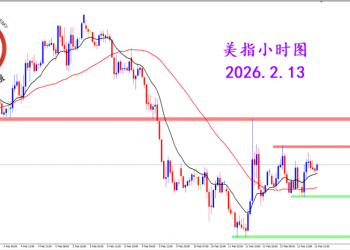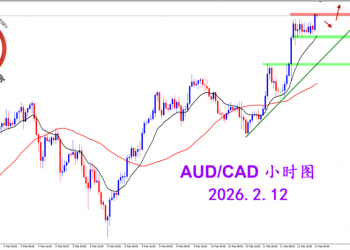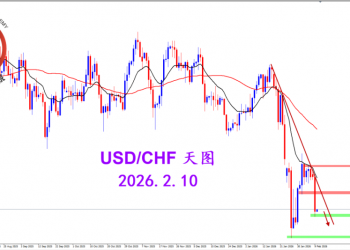Dispute Over Arms Dossier Wounds the BBC
By WARREN HOGE
ONDON, Aug. 31 ?The BBC, the world's largest and best known public service broadcaster, sends out millions of words daily, but its long-nurtured reputation for accuracy, fairness and objectivity is being challenged for just 20 of them.
On May 29, the defense correspondent of its morning radio news show, Andrew Gilligan, said that the government had inserted into its dossier of intelligence on Iraqi arms the claim that Saddam Hussein had biological and chemical weapons that were deployable within 45 minutes.
Mr. Gilligan went on to say that "actually the government probably knew that that 45-minute figure was wrong, even before it decided to put it in." The phrase took only seconds to utter, at 6:07 a.m., but the effect has been long lasting.
It has produced a polarizing battle between the BBC and the government of Prime Minister Tony Blair that is being played out in the current high profile inquiry into the death of the source of the report, apparently by his own hand. He was Dr. David Kelly, a Defense Ministry weapons expert.
While most attention has been focused on the decline in public trust of Mr. Blair's government, the BBC's ratings have slid as its practices and internal judgments have been exposed. In a poll in The Daily Telegraph late last week, 47 percent of those questioned said their opinion of Mr. Blair had gone down since the inquiry began, and 36 percent said their opinion of the BBC had also fallen.
Both Mr. Blair and the BBC chairman, Gavyn Davies, testified last week, and neither gave an inch.
Mr. Blair said he considered the charge that his government had knowingly falsified the intelligence document so damaging to his integrity that he would have been obliged to resign had it been true. He complained that repeated attempts to get the BBC to retract the report had failed.
In remarkably similar terms, Mr. Davies said he had found the government's campaign "an unprecedented attack on the impartiality of the BBC and the integrity of the BBC, done with great vigor."
The government may have reacted with added vigor because after broadcasting his report, Mr. Gilligan wrote a column for The Mail on Sunday, an aggressive tabloid with a strong anti-Blair bent. It contended that Alastair Campbell, the powerful director of communications and strategy, was the person who forced the 45-minute claim into the document over the objections of the security services.
Mr. Campbell, who announced Friday that he was resigning in the coming weeks, took personal offense and turned the vast media apparatus under his command into a campaign to denounce the BBC, accusing it of systematic bias.
While the 11 days of testimony have uncovered evidence that the government was feverishly involved in the wording and shaping of the intelligence dossier, it has not turned up any corroboration for Mr. Gilligan's report that it deliberately published dubious claims over the objections of intelligence chiefs.
Though Mr. Campbell's angry campaign is widely criticized for having been undeservedly hostile, it has had the effect of disconcerting the BBC. Mr. Davies, in his effort to repel the government assault, found himself last week defending departures from journalistic standards as acceptable for the BBC.
The examination of the BBC is occurring at a moment when the 81-year-old corporation has embarked on a modernizing mission to appeal to a younger audience, leading to criticism that it is too big, too commercial and too eager to appeal to the masses. Mr. Gilligan, a defense reporter from The Sunday Telegraph with a history of breaking exclusive news developments, was hired for the BBC's agenda-setting morning news program to further a new goal of having the BBC make news as well as report it.
Mr. Davies told Lord Hutton, the judge leading the inquiry, that he had summoned the BBC's board of governors to an emergency meeting last month and obtained from them an affirmation that proper journalistic procedures had been followed in producing the Gilligan report. The inquiry was shown an e-mail message that Mr. Davies sent the governors afterward congratulating them for not "caving in to Number 10."
Documents released this weekend and other correspondence made public during the hearings show that the Gilligan report had in fact come under major question and that several board members voiced misgivings.
The governors had seen an internal memo from Kevin Marsh, Mr. Gilligan's editor, justifying the item as "a good piece of investigative journalism marred by flawed reporting" and citing its "loose use of language and lack of judgment in some of the phraseology."
Greg Dyke, the BBC director general, and Richard Sambrook, the director of news, had defended Mr. Gilligan's style to the governors as "one in which he reported in primary colors, or bold colors, rather than shades of gray."
Mr. Davies acknowledged that the board of governors had not tried to establish "the intrinsic truth" of the original charge before they issued their endorsement of the practices that led to it being broadcast.
Under questioning, Mr. Davies listed several paths for people to follow if they felt a BBC report had dealt with them unfairly, but he said that none of them could rule on accuracy. Lord Hutton's counsel, James Dingemans, replied that he saw no way a person "seriously aggrieved" by a report he considered wrong could get a correction from the BBC.
As a group, the governors faulted Mr. Gilligan's editors for not seeking any comment from 10 Downing Street before broadcasting the charge. One governor, the corporation's vice chairman, Lord Ryder, complained that the BBC was adopting tabloid standards of never corroborating charges. Another, Dame Pauline Neville-Jones, suggested bringing in independent monitors of BBC procedures "to answer charges that we never admit we are wrong."
When Mr. Davies argued in his testimony that the BBC was only broadcasting a credible source's charge that the government had falsified information, not making the charge itself, Lord Hutton asked if he really thought listeners were able to make that distinction.
Lord Hutton asked Mr. Davies if the charge had been about a public official taking a bribe, would the BBC have broadcast it without first checking to see if the charge was correct. Mr. Davies replied, "My feeling, My Lord, is in a situation like that you would ask the senior public figure whether it was true." |
 2026.2.13 图文交易计划:美指持续震荡 等960 人气#黄金外汇论坛
2026.2.13 图文交易计划:美指持续震荡 等960 人气#黄金外汇论坛 2026.2.12 图文交易计划:多头持续挺进 澳1050 人气#黄金外汇论坛
2026.2.12 图文交易计划:多头持续挺进 澳1050 人气#黄金外汇论坛 2026.2.11 图文交易计划:磅加坚决阴线 适1142 人气#黄金外汇论坛
2026.2.11 图文交易计划:磅加坚决阴线 适1142 人气#黄金外汇论坛 2026.2.10 图文交易计划:美瑞大幅下跌 等1081 人气#黄金外汇论坛
2026.2.10 图文交易计划:美瑞大幅下跌 等1081 人气#黄金外汇论坛